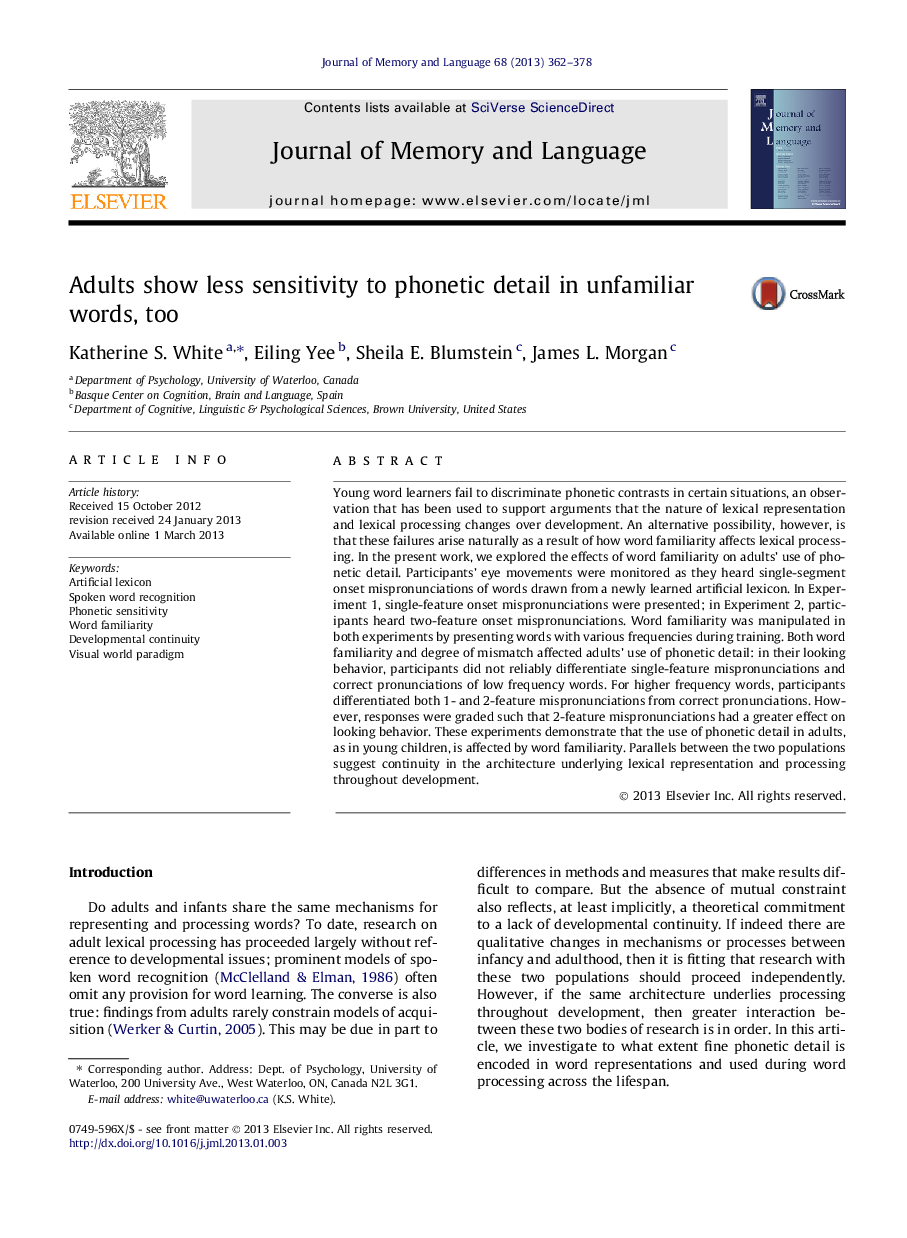| Article ID | Journal | Published Year | Pages | File Type |
|---|---|---|---|---|
| 931889 | Journal of Memory and Language | 2013 | 17 Pages |
Young word learners fail to discriminate phonetic contrasts in certain situations, an observation that has been used to support arguments that the nature of lexical representation and lexical processing changes over development. An alternative possibility, however, is that these failures arise naturally as a result of how word familiarity affects lexical processing. In the present work, we explored the effects of word familiarity on adults’ use of phonetic detail. Participants’ eye movements were monitored as they heard single-segment onset mispronunciations of words drawn from a newly learned artificial lexicon. In Experiment 1, single-feature onset mispronunciations were presented; in Experiment 2, participants heard two-feature onset mispronunciations. Word familiarity was manipulated in both experiments by presenting words with various frequencies during training. Both word familiarity and degree of mismatch affected adults’ use of phonetic detail: in their looking behavior, participants did not reliably differentiate single-feature mispronunciations and correct pronunciations of low frequency words. For higher frequency words, participants differentiated both 1- and 2-feature mispronunciations from correct pronunciations. However, responses were graded such that 2-feature mispronunciations had a greater effect on looking behavior. These experiments demonstrate that the use of phonetic detail in adults, as in young children, is affected by word familiarity. Parallels between the two populations suggest continuity in the architecture underlying lexical representation and processing throughout development.
► Adults show effects of word familiarity on phonetic sensitivity. ► Familiarity effects may reflect properties of lexical architecture that are similar across development. ► Developmental approaches to lexical representation must consider adult data. ► Common framework for interpreting phonological competition effects in different populations.
